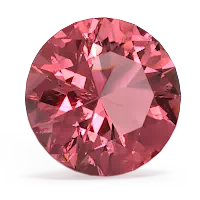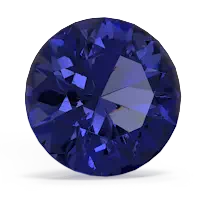

The gemstone is the star in these elegant Pink Tourmaline solitaire pendants. Pink tourmaline is a birthstone of October, along with opal, and is a truly special gem. The deep rosy color of a pink tourmaline ring will be sure to attract attention. Sapphire is the birthstone of September, and one of the most popular gemstones on the jewelry scene today. The deep blue color of a sapphire ring is just right for an evening out.